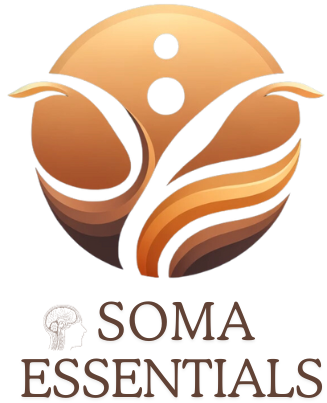How Does Body Awareness Affect Our Ability To Manage Stress?
Picture yourself in a moment of stress, your heart pounding, mind racing, feeling waves of overwhelming pressure. Now, imagine knowing exactly how to mitigate this stress, not with medications, but using your body’s intrinsic abilities. This isn’t a fantasy, but rather the intricate dance of body awareness and stress management that is well within your reach. “How Does Body Awareness Affect Our Ability To Manage Stress?” offers a thought-provoking exploration into how understanding your physical self can empower you to better control stress and embrace peace in its stead.

Understanding Body Awareness
In this journey of self-discovery and wellness, the concept of body awareness takes a central role.
Definition of body awareness
Body awareness, also known as proprioception, is the conscious recognition of your physical self. It’s the understanding of your body’s size, shape, movements, and the space it occupies. But body awareness goes beyond physicality, it’s about recognizing bodily sensations, changes, and the signals your body sends, which is an integral part of your holistic wellbeing.
Importance of body awareness
A heightened body awareness can enable us to be more proactive about our health. It helps us recognise the early signs of physical stress or discomfort before they become exacerbated into something more serious. It encourages healthier habits involving diet, exercise, and posture, preventing potential injury. Furthermore, body awareness also plays a part in our emotional and mental health with its inextricable link to the mind-body connection.
The mind-body connection
The mind-body connection suggests a strong interrelationship between our physical selves and our emotional or mental state. Our feelings, beliefs, and thoughts can positively or negatively affect our biological functioning. In the same vein, our physical condition can influence our mental state. With enhanced body awareness, we can identify emotions and mental states that manifest as physical sensations, such as increased heart rate or muscular tension, offering potential pathways to manage stress and emotional wellbeing.
Stress and Its Impacts on the Body
We’re all familiar with the concept of stress, but its impacts on our bodies are broader and more profound than we might realize.
Effects of stress on physical health
Stress has direct implications on our physical health, including headaches, upset stomach, elevated blood pressure, chest pain, and difficulties sleeping. It can lead to long-term health complications like heart disease, obesity, and diabetes. Stress can manifest bodily discomfort and changes that, with improved body awareness, can be recognised and addressed promptly.
Psychological consequences of stress
In addition to physical health complications, stress takes a toll on our mental and emotional health. It can lead to anxiety, restlessness, lack of motivation or focus, feelings of overwhelm, and even depression. This can harm our relationships, performance, and overall quality of life.
How stress changes body awareness
Interestingly, stress can both hamper and heighten body awareness. Chronic or recurring stressful situations may create a persistent sense of tension or discomfort, reducing body awareness. On the other hand, acute stress might heighten awareness of particular physiological responses such as increased heart rate, rapid breathing, or muscle tension.
Body Awareness and Stress Reduction
The relationship between body awareness and stress is a two-way street: while stress can affect body awareness, increased body awareness can also help alleviate stress.
How improved body awareness reduces stress
Improved body awareness assists us in identifying stress symptoms early, allowing us to address them proactively. By recognizing cues like muscle tension, accelerated heart rate, or shallow breathing, we can use techniques like deep breathing, mindfulness, or yoga to mitigate stress reactions and cultivate calm.
Activities that enhance body awareness and lower stress
Practices like yoga, Tai Chi, martial arts, and dance can increase body awareness and mindfulness, promoting relaxation and stress reduction. Physical exercise, in general, enhances body awareness and contributes to stress relief by releasing endorphins or ‘feel-good’ hormones. Healthful diets, adequate sleep, and hydration also contribute to enhanced body awareness and stress reduction.
Case studies showing positive effects of body awareness on stress management
There is considerable scientific and anecdotal evidence supporting the benefits of body awareness for stress management. For instance, a study published in the Journal of Nursing and Health Sciences demonstrated that body awareness therapy significantly reduced stress in nursing students.

Techniques to Enhance Body Awareness
While we develop some body awareness in our everyday activities, there are specific techniques to further heighten this consciousness.
Practices like yoga and tai chi
Yoga and tai chi are ancient disciplines that encourage mind-body connection and body awareness. These practices incorporate slow, controlled movements and mindful breathing, helping us tune into each part of our body and how it feels and moves.
Role of mindfulness meditation
Mindfulness meditation trains us to focus on the present, including our physical sensations, without judgment. This heightened self-awareness helps us recognize stress signals and take steps to manage our stress levels.
Importance of physical exercises in promoting body awareness
Regular physical activity, especially those requiring control, balance, and coordination, significantly enhances body awareness. These exercises help us become more attuned to our body’s capacities, strengths, weaknesses, or imbalances.
Body Awareness and Emotional Regulation
Enhanced body awareness isn’t just about recognizing physical sensations; it also includes recognizing and managing emotions they might be linked with.
Connection between body awareness and control over emotions
Emotions often manifest in physical sensations, and understanding these correlations is a crucial part of body awareness. For instance, anxiety might cause a rapid heart rate or sweaty palms. Recognizing these physical responses allows us the opportunity to address the underlying emotions.
Role of body awareness in recognizing stress signals
Body awareness plays a crucial role in recognizing stress indicators. Recognising things such as a tensed body, shallow breathing, or a racing heartbeat can alert us to stress, allowing us to take proactive steps towards managing the emotion before it escalates.
How emotional regulation contributes to stress management
Facilitating emotional regulation is a significant benefit of body awareness. Observing and identifying physical sensations helps us pinpoint the emotions causing them. This makes us better equipped to regulate those emotions effectively, ultimately contributing to more effective stress management.
Scientific Research on Body Awareness and Stress
Research continues to shed light on the precise relationship between body awareness and stress, and current findings are promising.
Presenting key findings
Research indicates that body awareness exercises, like yoga and mindfulness, can significantly reduce stress, anxiety, depression, and improve overall mental health. Furthermore, a study from the Journal of Consulting and Clinical Psychology found a direct link between mindfulness, body awareness, and improved stress resilience.
Reviewing relevant studies
Various studies support the idea that body awareness is an effective tool for stress management. Clinical trials have shown that practices promoting body awareness, such as mindfulness-based stress reduction or body scanning, can reduce stress and enhance wellbeing.
Evidence supporting the stress-reducing effects of body awareness
Scientific evidence supporting the stress-reducing effects of body awareness comes from numerous sources, including experimental, clinical, and observational studies. For instance, research published in Health Education & Behavior demonstrated that increased physical activity, a body awareness-promoting behaviour, was linked with decreased perceived stress.
Challenges in Achieving Body Awareness
Despite being an effective stress management tool, reaching a heightened state of body awareness may come with several challenges, including physical, mental, and circumstantial obstacles.
Physical limitations
Physical limitations, injuries, or disabilities may make some body awareness practices challenging. However, modifications and alternatives exist for most exercises, ensuring everyone can reap the benefits of enhanced body awareness.
Mental obstacles
Mental obstacles like fear of judgement, self-criticism, or body image concerns can hinder progress in body awareness. It is important to foster a safe, accepting, and non-judgemental attitude towards ourselves during the process.
Lack of access to proper training or guidance
While there are many resources available for cultivating body awareness, lack of access to proper training or guidance can be a barrier. Overcoming this requires reach and support from health care providers and educators.
Strategies for Incorporating Body Awareness in Everyday Life
You don’t necessarily need to make huge changes in your lifestyle to enhance body awareness. Here are a few practical ways to integrate it into your daily routine.
Creating a body-awareness routine
Creating a routine can be a beneficial way to develop body awareness. It could be a 10-minute morning yoga routine or a daily mindfulness exercise during your lunch break. Find out what resonates with you.
Incorporating body-awareness activities in work breaks
Standing up to stretch, taking deep breaths, or quick mindful exercises can break the cycle of work-induced stress and keep you connected with your body.
Tools and apps that promote body consciousness
There are multiple tools and apps designed to help boost body awareness. Tools like posture correctors or fitness trackers can provide helpful insights, while apps can guide you through yoga or mindfulness exercises.
The Role of Healthcare Providers in Promoting Body Awareness
Healthcare professionals play an integral part in promoting body awareness as a vital component of overall wellbeing.
How healthcare providers can encourage body awareness
Healthcare providers can suggest exercises and strategies to increase body awareness, provide resources and education, and include body awareness exercises as part of treatment plans.
Educational resources for body awareness
Healthcare providers can contribute informative materials, or organise workshops or seminars to educate their patients about body awareness and its benefits.
Professional guidance and support available for body awareness
Professional guidance, through physiotherapists, occupational therapists, or mental health professionals, can provide personalised support in enhancing one’s body awareness and managing stress.
A Holistic Approach: Body Awareness and Overall Health
Considered in a wider context, developing body awareness encourages a more holistic approach to health, interlinking physical, emotional, and mental wellbeing.
How body awareness contributes to overall wellness
Having heightened body awareness improves physical health by promoting better posture, motion, and energy. It enhances mental wellbeing by teaching us how to proactively manage stress and regulate emotions.
The importance of integrating body awareness in stress management plans
Incorporating body awareness in stress management plans allows for more holistic and effective strategies. It is a proactive, holistic approach to wellness, addressing the physical, emotional, and mental facets of stress simultaneously.
Case examples of holistic health improvement through body awareness
Case studies have shown that individuals who adopted body awareness practices have experienced a decrease in their stress levels, an improvement in physical discomfort, or an enhancement in emotional regulation. Thus, integrating body awareness can greatly contribute to a more comprehensive approach to health and wellness.

